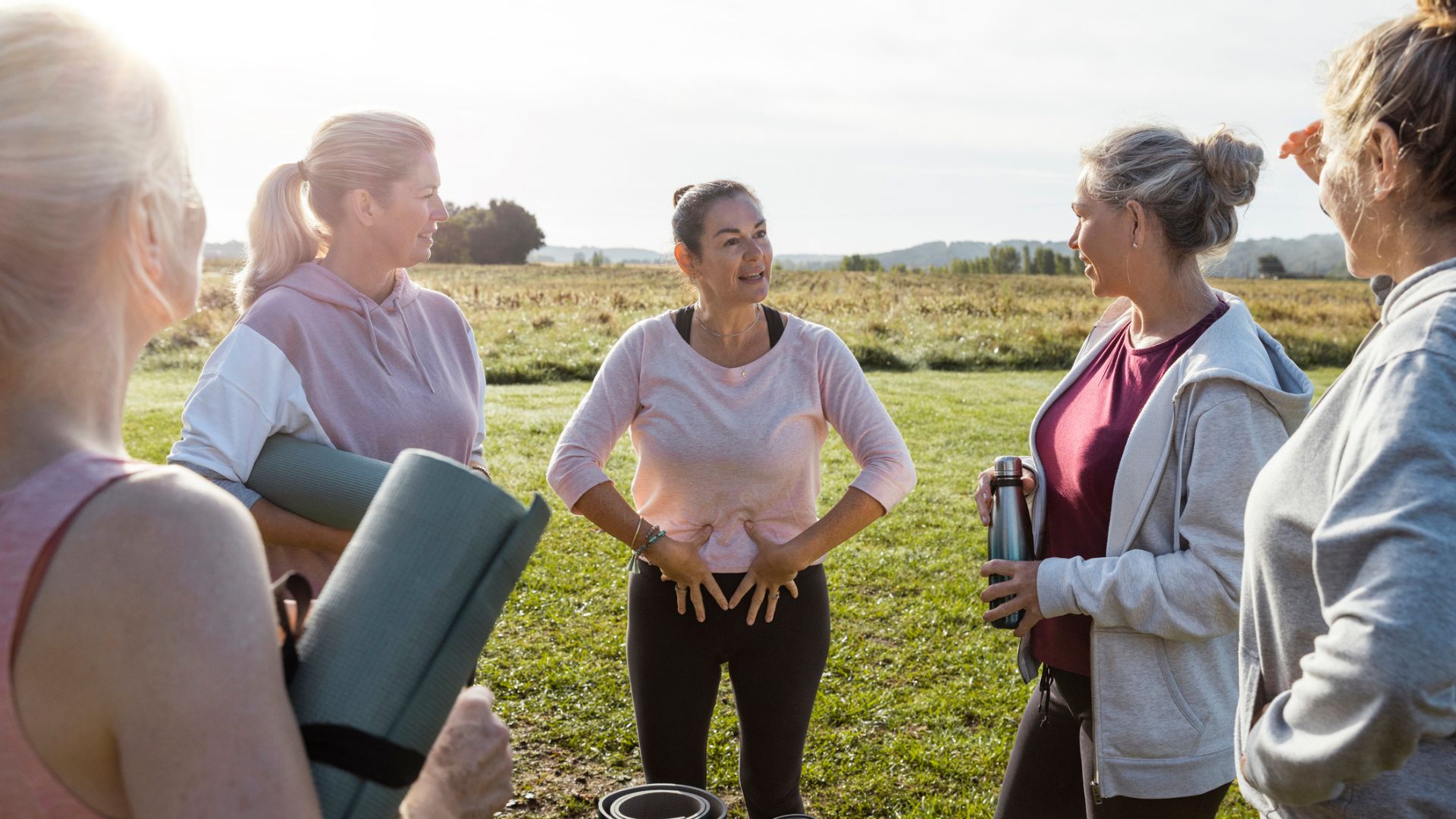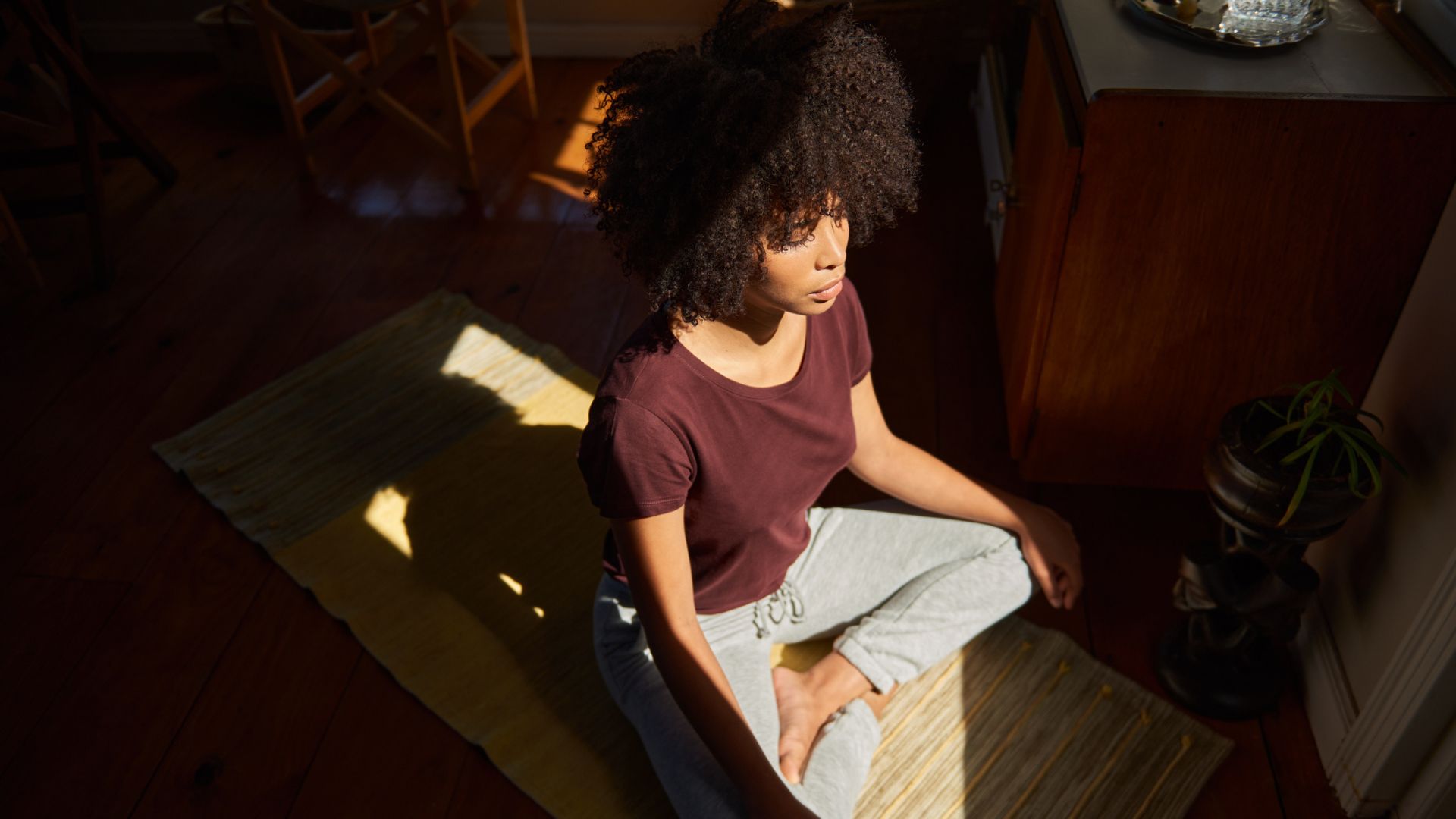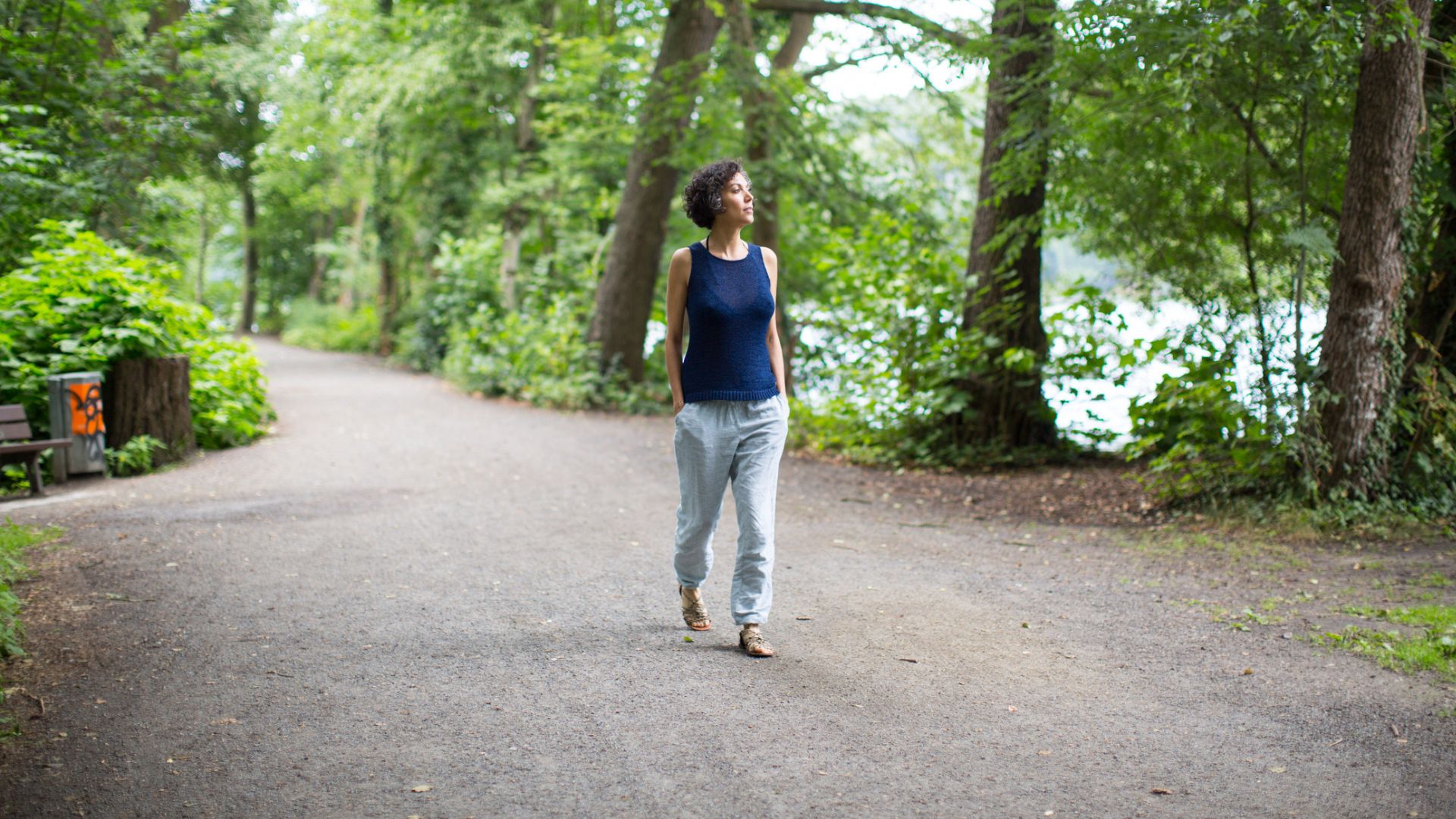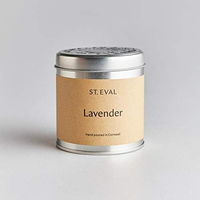14 ways you can practise self-care every day
From relaxing activities to ways to make your day-to-day life run more seamlessly, a wellness expert dives into the small ways you can practise self-care


Feeling a little frazzled, disconnected or on the road to burnout? Building healthy habits and learning how to practise self-care in your everyday life could help you find some more balance.
So often we get stuck fielding so many demands on our time from career requirements to family responsibilities that our own wellbeing gets pushed to the bottom of the list. Setting some time aside each day for self-care habits that will boost your mood - even if it's just 15 minutes - will be beneficial in the long run.
With the help of a wellbeing expert, we've compiled key ways you can practice self-care every day, from relaxing activities to ways to make your day-to-day life run more seamlessly.
How to practise self-care every day
1. Meditate (even just for five minutes)

Meditation is so beneficial to our minds and slows down the nervous system - even just a few moments a day can help to feel calmer and focused day to day.
The key is consistency and sticking to a routine, whether that's an evening or morning meditation. There are plenty of resources online, particularly on YouTube, and via some of the best meditation apps to get you started.
2. Get outside
Getting outside in nature has benefits for both body and mind. The ancient Japanese wellness of forest bathing involves walking through the woods and observing the sights and sounds of the forest. Engaging in this in some way isn't only a great self-care idea but has proven benefits for your mental and physical health, with studies by Jiangxi Agricultural University showing that the ritual can "significantly enhance people’s emotional state, attitude, and feelings towards things, physical and psychological recovery, and adaptive behaviours" as well as alleviate symptoms of anxiety and depression.
But if you want to keep it simple, even just getting outside for an early morning walk and absorbing sunlight has health benefits like regulating mood and improving sleep.
Sign up to our free daily email for the latest royal and entertainment news, interesting opinion, expert advice on styling and beauty trends, and no-nonsense guides to the health and wellness questions you want answered.
3. Light some candles
It's important not to save acts of self-care for a rainy day. If you have expensive candles, light them and enjoy them instead of saving them for a dinner party or when people come over. You deserve to enjoy them just as much as anyone else.
Candles can create a relaxing ambience and set the tone for a restful evening, particularly if you use scents with notes of lavender, chamomile, rose, bergamot orange, and sage.
St Eval Lavender Scented Candle: £17 at Amazon
"This is my favourite scent to burn after a long week," says health editor Grace Walsh. "Fragranced with the scent of English lavender, it's so relaxing and permeates through my home - I can smell it in every room - and it feels like it burns for ages. Orange and nettle from St Eval is another favourite."
4. Practice self-compassion
"All that kindness you show others? Treat yourself the same way," says Klimenka. "How you talk to yourself is really important. Whether you’ve run a marathon or binge-watched your favourite series in record time, you’re doing great - so replace that negative self-talk with positive affirmations."
5. Establish a wind-down routine
Having a set nightly routine can help you learn how to sleep better, improving your overall wellbeing and boosting feelings of happiness and contentment. Per research by Charles University, our perceived quality of life improves after a good night's sleep.
Getting a good night's sleep is dependent on creating a better bedtime routine with a good wind-down from the day for many people. Relaxing night routines can vary from a meditation, soothing bubble bath or getting lost in a good book - as long as it brings you a sense of calm.

6. Engage in enjoyable exercise
Exercise is a proven mood-booster. Whether you do it by yourself or with friends, there's plenty of evidence for how even just a short yoga mat workout or walking meditation can boost your mood and be a positive moment of self-care.
"Exercise is important, but it doesn’t have to be a chore," says Klimenka.
Whether you want to dance, swim, practice yoga, or climb a mountain, do what you love - and listen to your body. If an activity makes you feel worn out and miserable instead of energised and happy, try something new."
7. Nourish your body with healthy meals
The same goes for food when it comes to self-care. Eat foods that will nourish your body and make you feel good, rather than always opting for foods that you 'think' you should eat.
"Restrictive diets won’t make you feel better. You’ll feel guilty every time you eat something with a little flavour," Klimenka says told us. "You don’t need to cut out your favourite foods and avoid carbs at all costs; you need to tune into your hunger and fullness signals."
Foods high in protein and high-fibre foods will be most beneficial when you're hungry though. Per research by Jeju National University Hospital, these are the slowest to digest so will keep you fuller for longer.
8. Have a power clean
Cleaning can be therapeutic and although it's considered a chore to many, a quick power clean can really lift your spirits. Clearing surfaces like floors and kitchen cabinets, wiping down mirrors and getting your possessions in order can help you feel more organised in an instant.
The same goes for a quick clearout of your daily handbag and your wardrobe. "Clear out your wardrobe of anything that doesn’t fit your body or make you feel good," says Klimenka. "Then head out for some retail therapy and invest in clothes that make you feel your best - not anybody else."
While you do it, put on some motivating, positive music or an interesting podcast to lift your spirits and engage your mind in a healthy way.

9. Do something creative
If there was one thing we learnt during the multiple Covid-19 lockdowns in the UK is that creative activities, like crafting, painting, sculpting, and sewing can be a real balm from the stress of daily life. There was even a study to prove it - research from University College London found that more time spent gardening was linked to reductions in symptoms of depression and anxiety and improved life satisfaction.
Equally, time spent doing DIY, woodwork, and arts and crafts were found to have the same benefit.
Creativity is a great way to tap into another side of yourself and can be a relaxing process. You could sign up for an art class or crafts group, or practice alone with videos online. If there's a creative passion you've not yet pursued, now's your time.
10. Have a laugh
If in doubt, laugh it out. Laughing is good for the soul and released neurochemicals that improve our sense of wellbeing. These include endorphins, the same feel-good hormones we get from exercise. A healthy flow of these has even been shown to reduce physical feelings of pain - per researchers at John A Burns School of Medicine.
When we laugh, serotonin is released as well. Known as the 'happy hormone', this is an anti-depressant neurotransmitter released when we laugh. It also plays an important role in digestion, ensuring that all goes smoothly at the same time. Win-win.
So, phone a friend who never fails to make you chuckle or put on a classic film that will provide some belly laughs. Escapism through a feel-good TV series or movie is an instant way to lift your spirits.
11. Get a massage
Massage is one of the oldest established self-care rituals, with proven benefits for improving circulation and decreasing muscle tension. It can also help to reduce stress by lowering your cortisol levels, increasing vagus nerve activity, and releasing endorphins - similar to how exercise would.
You can get different types of massages - from intense deep tissue massages to relaxing treatments designed to improve blood flow and offer a moment of self-care.
Lush Highlands Spa Treatment: £150 at Lush
This 60-minute session is a new addition to Lush's collection of relaxing massages, inspired by ancient Scottish history. Using hot stones and accompanied by exclusive soundscapes from Highlands, it's a unique experience and a moment for self-care.
12. Organise your week
Just as getting your belongings in order and cleaning your home can offer feelings of accomplishment, stress reduction, and general relief, organising your time can be hugely beneficial for getting your thoughts in order.
Often, feeling out of control is what leads many people to feel stressed and overwhelmed, so one of the best self-care habits you can get into is planning your week ahead of time. That could include big meetings, social occasions, and must-do chores.
13. Write down your feelings in a journal
Don't be afraid to listen to your emotions - whether that means confiding in a friend or loved one or spending some time alone sitting with your emotions.
Writing things down in a journal or notepad can help us process our thoughts. Repressing feelings can be damaging to us in the long run - we should always give ourselves permission to feel our emotions.
14. Clear up your social media feeds
A social media cull can be seen as an act of self-care, Marina Klimenka, wellness expert and co-founder of face yoga app Luvly explains. "Hit mute, unfollow, or block those social media accounts that spread negativity and thrive on making people feel inadequate," she says.
"Replace them with influencers, activists, and creators who celebrate diversity and promote self-love instead. Put your mental health first and create a feed that lifts your spirits instead of dragging you down," she says. It may also help to go for a digital detox totally and reconnect with nature.
And when you come back, think about how you use social media and how that may be impacting how you see yourself. "Stop heavily editing or adding a filter over every photo you take. Capture the real you, and you will soon become comfortable in your own skin. You’re beautiful, so show confidence and be proud of your authenticity," she says.
All the best self-care tips in the world can't make up for proper professional help if you are struggling with your mental health, however. Speak to your GP and reach out to a charity like Mind for more information if you need to.
Lauren is the former Deputy Digital Editor at woman&home and became a journalist mainly because she enjoys being nosy. With a background in features journalism, Lauren worked on the woman&home brand for four years before going freelance. Before woman&home Lauren worked across a variety of women's lifestyle titles, including GoodTo, Woman's Own, and Woman magazine.


